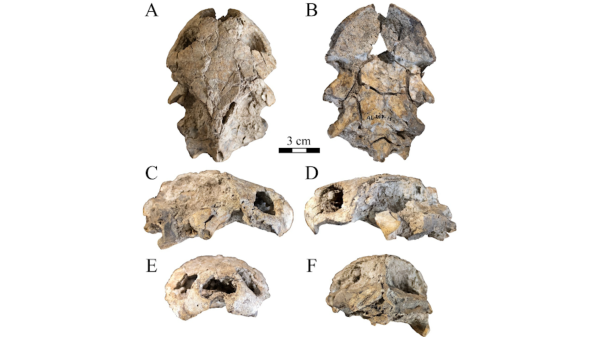School of Life Sciences professor's work on relationships and resilience featured on '60 Minutes'

Two rhesus macaque monkeys from Cayo Santiago, Humacao, Puerto Rico. Photo by Noah Snyder-Mackler
Noah Snyder-Mackler, assistant professor in the School of Life Sciences and Center for Evolution and Medicine at Arizona State University, and affiliate at ASU-Banner Neurodegenerative Disease Research Center at the Biodesign Institute and the School for Human Evolution and Social Change, was interviewed by CBS and featured on the "60 Minutes" broadcast for his research on Cayo Santiago.
Cayo Santiago, a small island off the coast of Puerto Rico, is home to about 1,800 rhesus macaque monkeys living in a natural laboratory, which Snyder-Mackler describes as “a Goldilocks research system — the perfect mix of the wild and the lab — with a complex social environment where we’re able to pair rich behavioral data with detailed physiological data.”
Snyder-Mackler studies how social behavior impacts health and survival. His work focuses on social relationships and how they can protect us from stressful events; how that affects how we age; and the associated social, structural and behavioral aspects that may impact health across species.
On the island, Snyder-Mackler and his team are specifically looking at how social behavior and environmental changes affect aging on the molecular level. When Hurricane Maria hit Puerto Rico in 2017, Cayo Santiago was the first island in its path and suffered immense devastation to its vegetation. Surprisingly, despite this devastation, the Cayo Santiago researchers found that only about 50 monkeys had died in the wake of the hurricane.
Then the researchers began looking at how the monkeys had been affected by the natural disaster. Snyder-Mackler and his team compared the immune cells of the monkeys exposed to the hurricane with the immune cells of monkeys who had not. By looking at inflammatory immune cell marker gene expression, they discovered that the monkeys’ immune cells looked like they had aged an extra two years (about 6–8 human years) after experiencing the hurricane.
Armed with new funding from the National Institute on Aging at the National Institutes of Health, Snyder-Mackler and his colleagues are starting to look at the long-term consequences of chronic stress in the now less predictable environment. They found that “the monkeys that did a better job of building social connections after the hurricane had better outcomes than those that did not.”
Going forward, they will begin to assess whether the monkeys will continue to age at an accelerated rate or if they can return to aging at a rate appropriate to their chronological age.
More Science and technology

New research by ASU paleoanthropologists: 2 ancient human ancestors were neighbors
In 2009, scientists found eight bones from the foot of an ancient human ancestor within layers of million-year-old sediment in the Afar Rift in Ethiopia. The team, led by Arizona State University…

When facts aren’t enough
In the age of viral headlines and endless scrolling, misinformation travels faster than the truth. Even careful readers can be swayed by stories that sound factual but twist logic in subtle ways that…

Scientists discover new turtle that lived alongside 'Lucy' species
Shell pieces and a rare skull of a 3-million-year-old freshwater turtle are providing scientists at Arizona State University with new insight into what the environment was like when Australopithecus…
